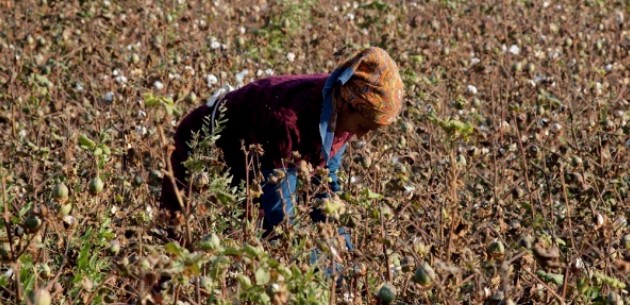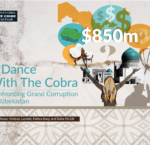State Crime and Child Labour in Uzbek National Cotton Production

By Fabiana Di Lorenzo
The European Center for Constitutional and Human Rights (ECCHR) has recently condemned the role of the Uzbek government in violating child and labour rights and has made a widespread call to boycott Uzbek cotton. According to the ECCHR cotton production in Uzbekistan is the result of state-led system of child and forced labour.[i] Children are forced to work in the national cotton harvest for up to three months each year in terrible and harmful conditions.[ii] Following international pressure, the government of Uzbekistan has signed both Convention No 29 on the Elimination of Forced Labour and Convention 138 on Minimum Working Age. Legal provisions are in place in Uzbekistan to prohibit forced labour (article 37 of the Constitution, section 7 of the Labour Code, and section 138 of the Criminal Code). Additionally, section 241 of the Labour Code prohibits the employment of persons under 18 years of age to work in harsh conditions or to be engaged in labour activities which may harm their health, safety or morals. The Committee of Experts of the International Labour Organisation (ILO) has further noted that the “List of occupations with unfavourable working conditions in which it is forbidden to employ persons under 18 years of age” prohibited children from being involved in farming activities such as watering and gathering cotton.[iii]
Despite international condemnation, international boycotts and resistance of farmers and teachers, every year schools are forced to send children to work.[iv] When families refuse to do so or decide to abandon cotton farming they are threatened by the police.[v] Farmers are forced to produce cotton alongside other products for their subsistence, but they are compelled to meet the quota requested by the government. According to ECCHR, those who do not mange to meet the requirements are imprisoned or beaten. All cotton produced must be sold to the national company Uzkhlopkoprom at a price established by the government[vi]and very little (10-15%) is reinvested on improving citizens’ lives.[vii] The Uzbek Prime Minister signed a decree banning child labour in cotton plantations in Uzbekistan in September 2008. However, the International Organisation of Employers recalls that despite the legislative framework against forced labour, between half a million to 1.5 million schoolchildren are forced by the Government to work in the national cotton harvest for up to three months each year, keeping production prices at the lowest level.[viii]Uzbekistan is the world’s third largest exporter of cotton (800.000 tonnes per year), with an annual revenue of US$ 1 billion in annual exports which benefits the ruling elites.[ix] Yet international prices remain high, contributing to the maintenance of high profits for the state Treasury.[x] Ultimately, the state exploits local resources to increase their control over labour force and citizens in order to increase its wealth.[xi] The ECCHR urges the international community and business to boycott Uzbek cotton as the government has already shown to be susceptible to international influence on former occasions. But the boycott does not seem to be having any major results. Whilst the call for boycotts has been welcomed by a broad number of retailers, this has had no significant impact on sales; the buyers have simply changed. In fact in 2011, while many European companies had joined the boycott, Russian companies bought around 40% of the cotton and the remaining 60% was bought by China, Bangladesh, Vietnam, Japan, UAE, Iran, Turkey, Pakistan, South Korea and Singapore.[xii] _________










































